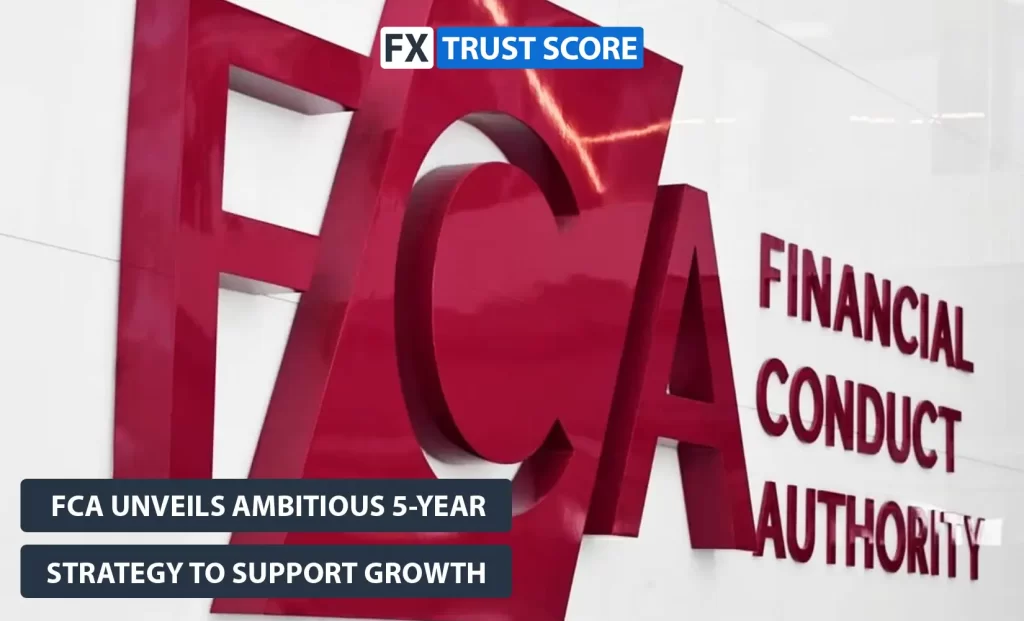The Financial Conduct Authority (FCA) has launched a bold new five-year plan designed to deepen trust, rebalance risk, support growth and improve lives by embracing technology.

The Financial Conduct Authority (FCA) has announced plans to adopt a more “flexible” approach to regulation going forward. After unveiling an ambitious five-year strategy, the UK watchdog has signalled a shift towards “less intensive” supervision for firms “seeking to do the right thing.”
As part of a strategic approach to tackle future challenges, the FCA aims to enhance the efficiency and effectiveness of its operations. Between now and 2030, the regulator intends to better serve consumers by using technology as a way to support growth, rebalance risk and build trust.
In a press release issued on Tuesday (March 25), the FCA set out four key priorities in a bid to improve its overall performance. These include being a smarter regulator, supporting economic growth, helping consumers and fighting criminality in the sector.
Commenting on the bold new plans, Ashley Alder, chair of the FCA, said: “We want to deepen trust in financial services and shift our collective attitude across financial services to risk. Too often the focus has been on the risks of a decision taken rather than the lost opportunity of taking none. We want to change that so we can spur growth and improve lives.”
Is this the FCA’s first long-term strategy?
No, the FCA has implemented similar long-term strategic plans before. Previously, the regulator launched a three-year strategy which included making the biggest changes to the listing regime in more than three decades.
Over the course of a 36-month period, the regulatory authority made it easier for companies to raise money. It introduced the Consumer Duty to set higher standards of consumer protection, authorising firms that meet the FCA’s high standards more quickly, and keeping more potentially harmful firms out of financial services.
Reflecting on the previous three-year plan, Nikhil Rathi, chief executive of the FCA, said: “Our last strategy set high standards and bolstered our operational effectiveness. We are committed to going much further, delivering at pace to meet the scale of change we are facing over the next 5 years.”
What does the new FCA strategy aim to achieve?
This latest strategy sets out exactly how the FCA plans to change its supervisory approach in order to become more efficient. This includes taking a less intensive approach for those firms seeking to abide by the rules. It also aims to streamline the way it defines its supervisory priorities, while reviewing whether it can stop requiring certain data returns.
Added to this, the London-based watchdog revealed plans to invest in its technology, people, and systems. By digitising and simplifying its authorisation processes, the FCA hopes to make it easier and quicker to apply, meaning the information received is of a better quality and follow-up requests are reduced.
Lastly, it will support FCA staff in building digital capabilities and adopting new approaches, enabling it to better handle the 100,000 cases it assesses annually. This will grant the authority the ability to act more quickly and decisively where the risk of harm is greatest.
What are the FCA’s four priorities?
In mapping out its vision for the future, the FCA identified several key areas of focus to strengthen its operations. It listed four specific priorities:
- Be a smarter regulator by improving its process and embracing the latest technology.
- Support sustained economic growth by promoting investment and continuous innovation.
- Help consumers navigate their financial lives by boosting trust and increasing support.
- Fight financial crime by disrupting criminals and supporting firms with effective defence mechanisms.
On the targeted plans outlined above, Mr Rathi added: ”Our four priorities reinforce one another and we look forward to collaborating with our partners as we become a smarter regulator, support growth, help consumers and fight crime.
“We are ambitious for the future and committed to enabling a fair and thriving financial services market for the good of consumers and the economy.”
Did you find this article insightful? Check out our guide to the Best FCA Regulated Forex Brokers for 2025 to compare the top companies currently licensed by the UK’s independent financial regulator.






